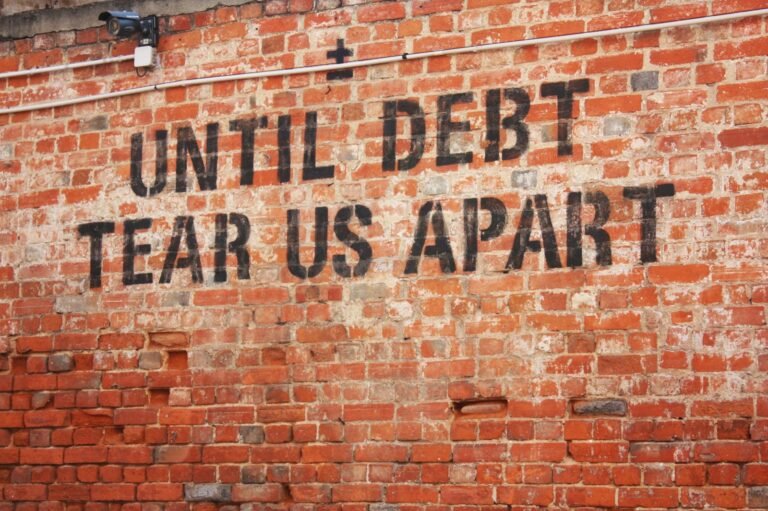How To Build Great Credit
Just like you keep your car engine running smoothly, you can also work on building your credit score! Good credit can open doors to better loan rates and financial opportunities. In this post, I’ll share some practical steps you can take to enhance your credit history and score. For more tips on how to build and maintain a solid credit history and score, check out this helpful guide How to build and maintain a solid credit history and score. Let’s dive in!
Key Takeaways:
- Pay your bills on time, as punctual payments contribute positively to your credit score.
- Keep credit utilization low by using a small percentage of your available credit, ideally under 30%.
- Regularly check your credit report for errors and dispute any inaccuracies that could negatively impact your score.
- Diversify your credit mix by incorporating different types of credit, such as installment loans and credit cards.
- Avoid opening too many new accounts at once, as this can lead to multiple hard inquiries that may lower your score.
The Building Blocks of Your Credit Score
Understanding the components that make up your credit score is vital to building a strong financial foundation. Your credit score is a numerical representation of your creditworthiness, which lenders use to assess the risk of lending you money. Each aspect of your credit behavior plays a significant role in this score, and knowing what these building blocks are allows you to strategize effectively.
The Factors That Define Your Credit Score
Several key factors influence your credit score, helping to paint a full picture of your financial habits. These include:
- Payment History
- Credit Utilization
- Length of Credit History
- Types of Credit Accounts
- New Credit Inquiries
The overall combination of these factors results in your unique credit score, showcasing both your ability and reliability as a borrower.
The Weight of Payment History and Utilization Rates
Your payment history accounts for a significant portion of your credit score, making it the most critical component to focus on. This metric reflects whether you’ve paid your bills on time and how many past due accounts you have. Similarly, credit utilization, which measures the amount of credit you are using relative to your total credit limit, can dramatically impact your score. Ideally, keeping your utilization below 30% is advisable; however, the lower the better. Both elements work in tandem to indicate to lenders whether you are a trustworthy borrower.
Let’s examine into why these two factors are so vital. A solid payment history demonstrates reliability, as you’re importantly proving that you can manage debt responsibly. On the other hand, low credit utilization indicates that you’re not overly dependent on borrowed funds, which can be interpreted as financial stability. For instance, if you have a credit limit of $10,000 and your current balance is $2,000, your utilization rate is 20%, which is favorable. Striving to maintain timely payments and low utilization can enhance your credit score significantly over time, leading to better opportunities for loans and credit. The combination of these two factors can make or break your credit profile.
Smart Strategies for Establishing Credit
Establishing credit might seem daunting, but strategic steps can make the journey smoother. From using credit cards wisely to considering secured credit options, it’s all about creating a solid foundation. By taking calculated risks and understanding the dynamics at play, you can set yourself up for long-term credit success while keeping your financial goals in sight.
How to Start Building Credit with a Credit Card
Starting your credit journey with a credit card is one of the most effective strategies. A secured or standard credit card allows you to demonstrate your payment reliability. Making small purchases and paying off the balance in full each month helps establish a positive payment history and boosts your credit score over time.
The Role of Secured Credit Cards in Your Journey
Secured credit cards are a valuable tool for building credit, especially if you’re starting from scratch or recovering from past mistakes. These cards require a deposit that serves as your credit limit, minimizing risk for the lender while allowing you to demonstrate responsible usage. Regularly using and paying off a secured card can significantly enhance your creditworthiness over time.
Choosing a secured credit card offers a straightforward way to kickstart your credit-building process. The deposit you make acts as collateral, typically ranging from $200 to $500, which sets your credit limit. If you make consistent, on-time payments, the lender will likely report your activity to the credit bureaus, helping to establish a solid credit history. As your score improves, you may have the chance to transition to an unsecured credit card, further enhancing your credit profile.
Diversifying Your Credit Portfolio
Diversifying your credit portfolio helps to strengthen your overall credit profile. It’s not just about having one credit card; a mix of installment loans, credit cards, and other credit types can positively impact your score. Lenders see a varied credit mix as an indication of your ability to manage different types of credit responsibly.
Incorporating different types of credit, like an installment loan or a retail card, complements your existing credit card usage, helping to enhance your credit score. For instance, adding a small personal loan with on-time payments can diversify your credit mix and signal to lenders that you can effectively manage your finances across various platforms. This balanced approach showcases your creditworthiness and can lead to better lending opportunities in the future.
The Pitfalls to Avoid on Your Credit Journey
A successful credit journey requires vigilance, as there are several common pitfalls that can derail your efforts. By steering clear of these missteps, you can maintain a healthy credit score and enjoy the financial benefits that come with it.
The Dangers of Late Payments and Defaults
Late payments can wreak havoc on your credit report, leading to significant drops in your credit score. Each late payment can stay on your record for seven years, making it imperative to prioritize timely bill payments. Defaulting on loans or credit agreements can be even more damaging, costing you not just financially but emotionally as well.
Understanding the Impact of Hard Inquiries
Hard inquiries occur when a lender checks your credit report to make lending decisions, and they can impact your credit score. Each hard inquiry may lower your score by a few points, which can add up if you’re applying for multiple credit products in a short period. Limiting your applications can help maintain a healthy credit profile.
Hard inquiries can stay on your credit report for up to two years, which means they can have a longer-lasting effect than you might expect. For those serious about building credit, it’s wise to space out applications and focus on understanding each lender’s requirements before applying. Consider soft inquiries, which don’t affect your score, as opportunities to assess your creditworthiness without the risk of a score drop. Keeping an eye on your credit report can also help you identify unnecessary hard inquiries that could be avoided in the future.
Avoiding the Debt Trap
Incurring debt can easily lead to a downward spiral if not managed properly. It’s tempting to rely on credit cards for purchases, but excessive debt can hinder your ability to pay bills on time and lead to diminished creditworthiness. Aim to live within your means, using credit wisely and only for necessary expenses.
The debt trap often stems from a lack of budgeting and financial planning. I’ve found that creating a detailed budget helps me track outgoing expenses and allocate funds for credit repayments. It’s vital to prioritize high-interest debts and make payments on time. Additionally, maintaining an emergency fund can provide a buffer during unexpected financial challenges, preventing reliance on credit cards and keeping your credit score intact.
Monitoring Your Progress and Staying Informed
Keeping track of your credit health is a vital part of building and maintaining great credit. Regularly monitoring your progress allows you to identify areas for improvement and stay ahead of any potential issues. With various resources available today, staying informed about your credit score and report has never been easier. Look for tools that not only track your score but also provide insights on how to improve it.
How to Access Your Credit Score for Free
You can easily access your credit score for free through various websites and apps, like Credit Karma or AnnualCreditReport.com. These platforms provide a reliable snapshot of your credit score, allowing you to track changes over time. Additionally, many credit card companies offer free credit score updates as part of their services, giving you another option to stay informed.
The Importance of Regularly Checking Your Credit Report
Checking your credit report frequently helps you spot errors or strange activity that might harm your credit score. According to the Federal Trade Commission, one in five consumers finds mistakes in their credit reports. These inaccuracies can come from a simple clerical error or even identity theft. By reviewing your report at least once a year, you can catch these issues early and dispute them, ensuring your credit remains in good standing.
Regularly checking your credit report not only helps in identifying mistakes but also keeps you aware of any new accounts opened in your name. This practice enables you to understand your credit utilization ratio, which heavily influences your score. By staying on top of your credit report, I can proactively manage my credit health rather than react to surprises when I need to borrow money. You’ll also get to see how your efforts to build credit pay off, making it a satisfying part of the journey.
The Long-Term Benefits of a Great Credit History
A strong credit history is an asset that pays dividends over time. It not only opens doors to better financial products but can also help you secure lower interest rates and larger credit limits. As I’ve experienced, the ripple effect of maintaining great credit often results in savings that extend beyond just loans—think of reduced deposits on utilities or improved rental applications. The reassurance of a solid credit rating builds confidence in financial decision-making and encourages long-term wealth-building strategies.
How Great Credit Unlocks Financial Opportunities
Great credit allows you to tap into various financial opportunities with ease. I’ve found that whether I’m applying for a mortgage, a car loan, or even a personal loan, having a stellar credit score simplifies the process and often leads to better terms. Lenders see me as a lower-risk borrower, which translates into lower interest rates and more favorable repayment options. This access can make a significant difference in the overall cost of borrowing.
The Connection Between Credit and Insurance Rates
Your credit score affects more than just loan approvals; it plays a role in the insurance rates you pay. Many insurers consider credit history when determining premiums for auto and homeowners insurance. A study by the Federal Trade Commission showed that individuals with good credit typically pay significantly less for insurance compared to those with poor credit. This connection isn’t merely a coincidence; insurers view credit scores as a reflection of financial responsibility, which can either reward or penalize you in terms of premium costs.
To wrap up
With this in mind, building great credit doesn’t have to be overwhelming. By paying your bills on time, keeping your credit utilization low, and regularly checking your credit report, you’ll be on the right path to a strong credit score. I find that staying informed and being proactive about my financial decisions makes all the difference. So, take these steps to heart, and you’ll likely see your credit improve over time, opening doors to better financial opportunities for you!
FAQ
Q: What are the key factors that contribute to building great credit?
A: The main factors that influence your credit score include payment history, credit utilization, length of credit history, types of credit accounts, and new credit inquiries. Making payments on time, keeping your credit card balances low relative to the credit limit, and maintaining a mix of credit types can significantly enhance your credit profile.
Q: How can I improve my payment history?
A: Improving your payment history starts with making all payments on time. Setting up automatic payments or reminders can help. If you’ve missed payments before, consider catching up on any overdue accounts. Consistency in paying on time over several months can positively impact your credit score.
Q: What is credit utilization and how can I manage it effectively?
A: Credit utilization is the ratio of your current credit card balances to your credit limits. To manage it effectively, aim to use less than 30% of your total available credit. Pay off balances in full each month if possible, and consider increasing your credit limit to lower your utilization ratio without increasing spending.
Q: How does the length of my credit history impact my credit score?
A: A longer credit history can be beneficial as it provides lenders with more information about your credit behavior. Keep older accounts open, even if they have little activity, as they contribute positively to your credit age. Over time, this can help demonstrate stability and responsible credit management.
Q: Are there any benefits to having a variety of credit types?
A: Yes, having a mix of credit types—such as credit cards, installment loans, and retail accounts—can improve your credit score. It shows lenders that you can manage different forms of credit responsibly. However, only open new accounts when necessary, and ensure you can manage each type effectively to avoid negative impacts on your credit.








